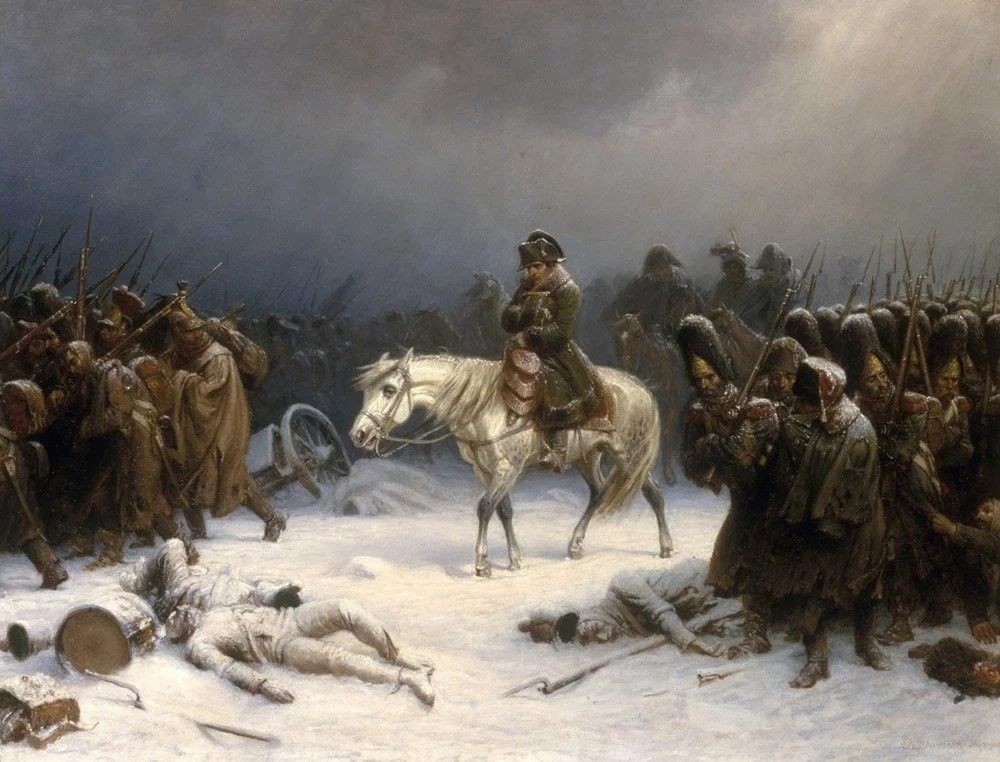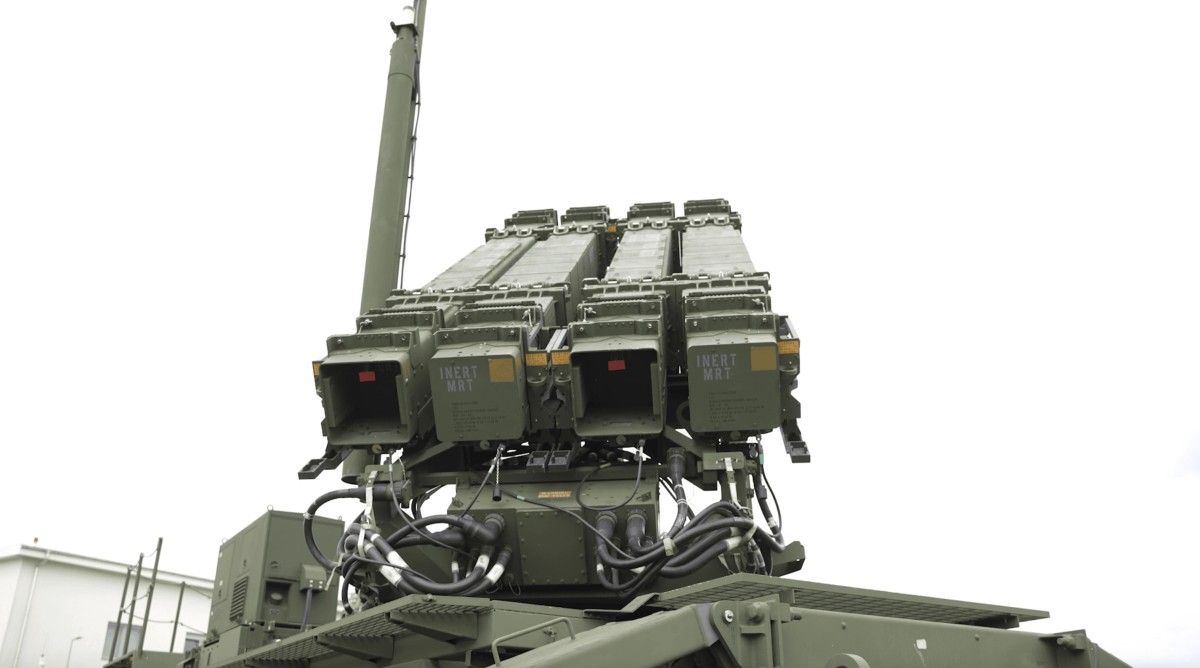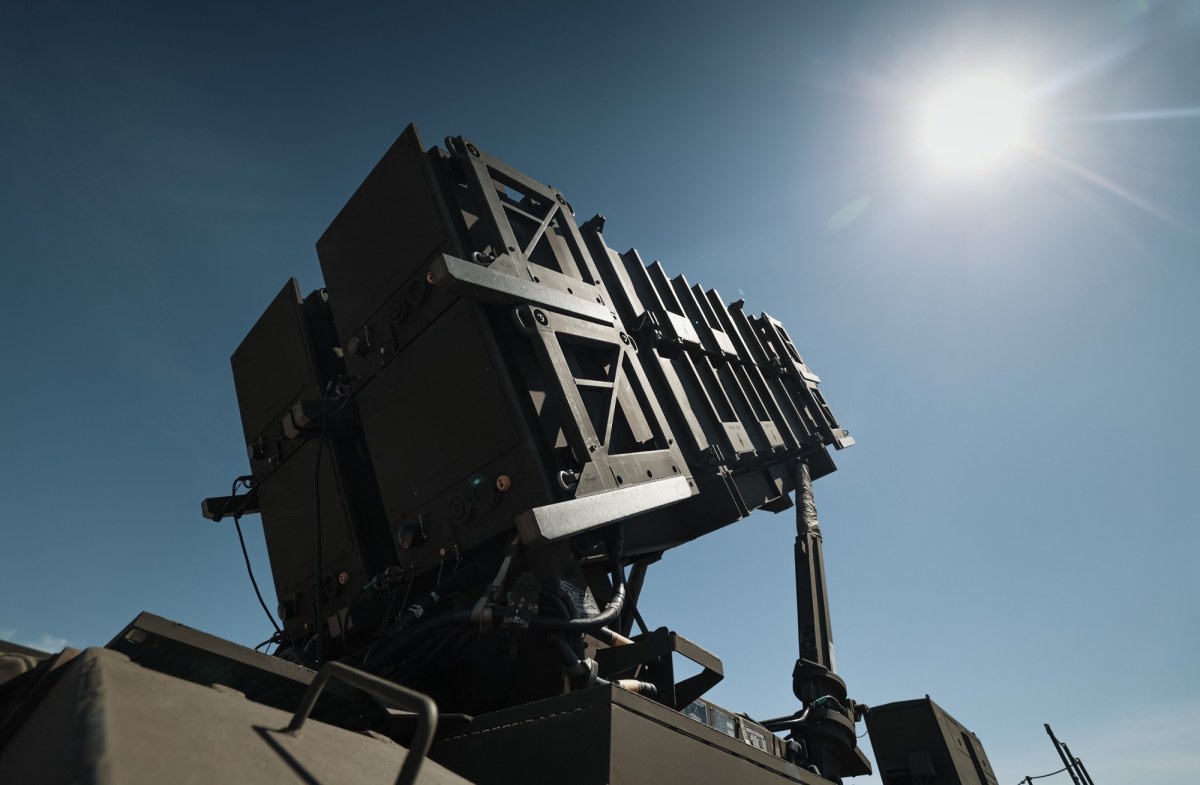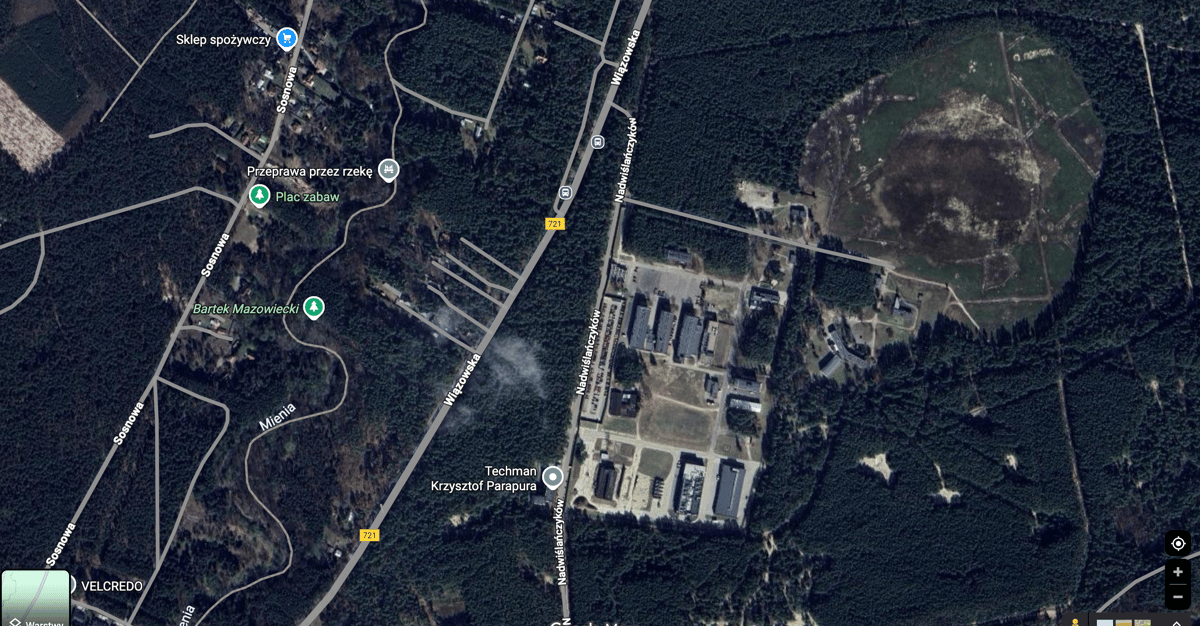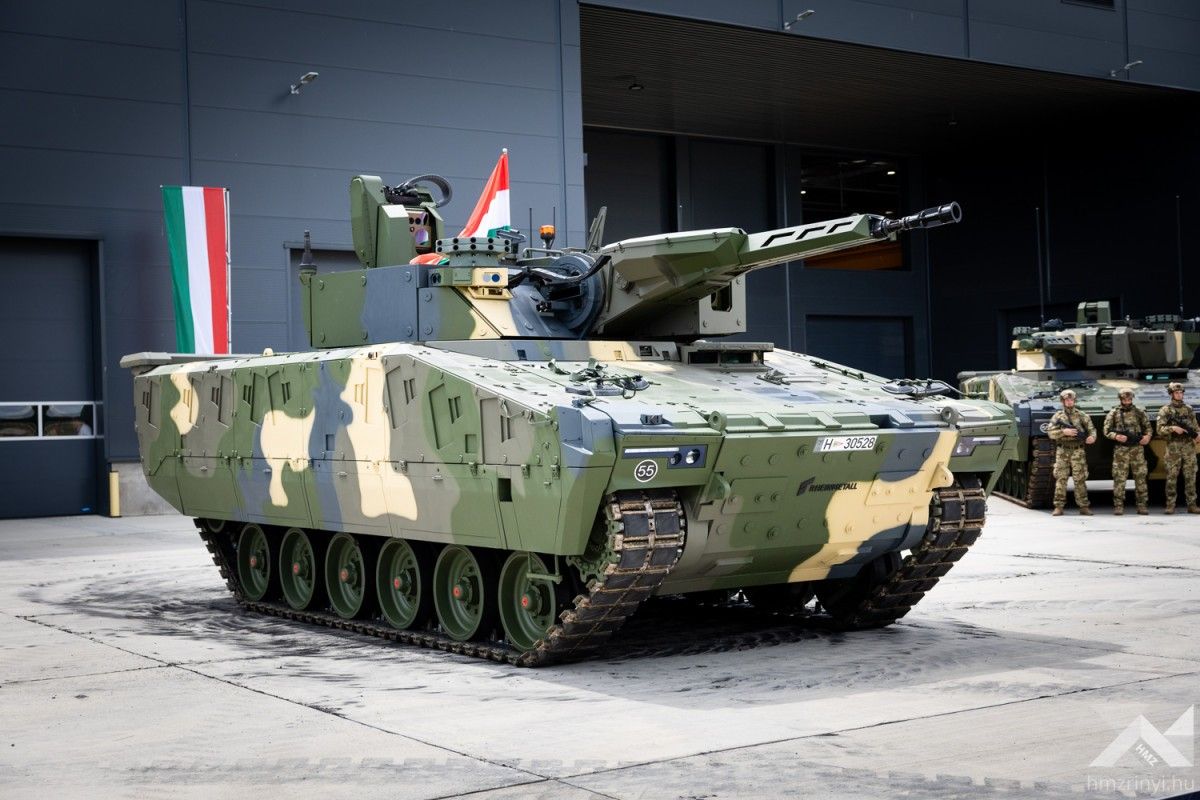You have repeatedly asked us to mention to the book “In the Shadow”, which is the recording of the conversation L. Maziewski with the erstwhile Head of AW – G. Small. We were a small reluctant to do that. However, we have promised our subscribers that they will have a lot to say about the topics we are discussing and we do not intend to break their word.
So we began to read the book “In the Shadow”. For those curious in peculiar services it will surely be a very interesting position. G. Małecki addresses many interesting themes in it and allows the reader to delve into the way the institution he managed. We thought, however, that it was pointless to post a “classical” review on the BiS.
So we decided to focus on elements about which our assessment differs from the 1 presented by G. Małecki. In any respects, we besides believe that the reader should have an alternate position on individual issues. If it suits you, let me know and we'll continue.
The erstwhile Head of the AW included in the book a devastating criticism of the way the company operates. We agree with him on a number of issues. Both military and civilian intelligence request organization reforms, changes in the way these institutions are managed, modernisation of their methods, and breaks with the remains of "times rightly past".
However, erstwhile reading G. Małecki's statements, the question is: "Damn, you're right, but why didn't you do anything about it erstwhile you had a real chance as 1 of the fewer people?" Given how the “company” worked at the time erstwhile he held his position, it is worth paying attention to 3 elements:
- The discrimination between the declarations of the erstwhile Head of the AW relating to the changes made by him and the actual functioning of that institution during his word of office.
- The historical context, that is, how the Agency worked “under the wings” of earlier and later bosses.
- Differences in the approach of G. Maecki's predecessors to officers working under diplomatic cover, as well as criticism of alleged simplification in the conduct of abroad intelligence activities in the period before the co-author took office “In the Shadow”.
All right, here we go.
Specific diagnosis, worse with execution
G. tiny talk extensively and in an interesting way discusses many of the problems that existed and inactive be in the Intelligence Agency. His diagnosis is correct in many places and we agree with it. So it is worth to appreciate the openness of the erstwhile head of this institution, especially in a situation where many people who hold managerial positions in the Polish services like to "forget" the difficulties.
The correct definition of problems is the starting point for any further efforts to modernise the safety sector. However, we cannot agree with the book’s claims that G. Małecki introduced changes in the company Systemwhich were then withdrawn.
From the position of at least any of the officers, the time of the co-author's office “In the Shadow” was characterized primarily by 3 elements – an audit opening, a low dynamics of operational activities, and a deficiency of deep organizational changes.
It's hard to blame G. Małecki for wanting to get acquainted with AW cases in the past and how the Agency worked. However, the audit besides had its darker side – a group of officers who considered themselves injured in the erstwhile "handle" virtually lined up with a individual appointed at the time to be an unofficial "husband of trust".
These people “informed” the full “evil” that was to spread behind the erstwhile leadership. Unfortunately, they did so mostly in the hope that the fresh realities “will prove to be” much more advantageous to them. This usually meant seeking promotions and privileges. And at least in any cases, this mechanics worked just like that.
Just so you can realize us. Reports have happened before and later. G. Małecki's times are no exception. The operation of the “company” in his predecessors' time left much to be desired and individuals had the right to disagree with the decisions taken at the time.
But... that's right – as you want to introduce “new quality” you cannot replicate negative “standards” from the past. Therefore, no premium should be given to informers. Rather, it would be wise to begin to exterminate them and advance teamwork in this place. The audit itself could be carried out in a completely different atmosphere, as well as utilizing different methods.
For example, conversations with officers should not take place on the principle: “If individual has a witness, I invitation you to my husband of trust.” They could be conducted, for example, on a random example of officers, or with each of them and according to the established scheme. The results of the audit should then be presented and a fresh imagination for the improvement of the AW presented. It wasn't done.
Another thing that did not look as "colored" as presented in the book was the general dynamics of operations during G. Małecki's time. Rather, it was a period where only “certainties” were made. Now imagine a situation like this: you gotta recruit. You're writing a study on your admission. And the question comes “from above”: “Will this work?”
So you're thinking, "I don't know if it's gonna work due to the fact that I'm not sitting in the head of an associate candidate." It is so possible to discuss whether it is appropriate to "timing", whether you have done your erstwhile actions correctly, whether you have the right arguments to talk to a figurehead... and so on.
But even if you do everything 100% correct, the guest can say no. That's it. And then you gotta go back to the headquarters, where your superior will welcome you, aid you re-examine the matter, draw conclusions for the future, and at the end of the beating on your back, and say, “Come on, we fight, the next 1 will be ours.”
And with this, too, was behind G. Małecki, speaking euphemistically... – different. any “heads” were able to breathe relief from the fact that a peculiar case had been torpedoed “on top”. They assumed that since there would be no action, there would besides be no problems. There was so a large aversion to risk-taking at decision-making levels.
And the last thing – the erstwhile AW chief says in the book “In the Shadow” (p. 32) that it introduced "deep strategy changes". any changes have indeed taken place, but in our opinion it is hard to characterise them as "deep" and "systemic". This could be called for by actions to increase the service budget and start the implementation of increases.
On the organizational side, however, small has changed.
So what was G. Małecki's term?
In our opinion, it was far besides short for a clear assessment. In order to be able to actually improvement any of the services, it is essential to carry out duties for at least 4 years, preferably longer. This besides requires a warrant of "inadequacy" (as in the case of the CBA Chief) or at least very much political support.
That's not what G. Littlecki had. In addition, he held his function very briefly – little than a year. So we'll never truly find out what the boss was like. “In the Shadow”. We can only conclude that the first months of his office did not indicate that "deep systemic changes" would be implemented.
But who knows what would happen in the next fewer years? possibly the improvement would have actually moved. It is besides worth placing the period of office of G. Małecki in a broader context. In our subjective assessment, both AW and SWW, have not yet experienced a good leader in their past – a individual who would actually undertake to make the essential changes in these institutions.
Perhaps we could find 1 candidate who could possibly be included. However, the periods of office of the another heads of intelligence services are at best average times. While delving into books written by erstwhile officers, the reader may feel that there are “golden years” in which all of this was “super”.
Then came the “dark years” in which all this was “to d...”. In our opinion, specified a crucial amplitude of the efficiency of the operation of peculiar services did not occur. It is much more appropriate to say that the period of work of the "reformed" intelligence services consists of chapters representing different shades of "grey".
Sometimes more comfortable work exists in AW, another time in SWW. This does not usually apply to all these institutions either. 1 department can be directed by a individual who is more competent, and another officer who can be questioned whether he is fit for this position at all.
Moreover, 1 cell may have better “recordings on the top”, and thus more “cass” and “green light” on actions, and another will complain about a much weaker position within the institution. 1 manager may besides be “on a wave” and, for example, grant people more bonuses and another may fall “in disfavor” ... and so on.
However, we are inactive moving within different shades of "grey". The differences in the performance assessments of the "company" in peculiar periods of past can so mostly be due to whether the officer was in the group of "privileged" people at the time, or had worse ratings.
However, this does not change the fact that intelligence institutions, as a whole, have not acted decently and are inactive not acting correctly. In a well-functioning organization, there must not be specified a crucial "fire" in assessing the competence and suitability of individual officers.
If you are good programmers, the regulation is that the company appreciates you, regardless of who happens to be the director. You can even do it from time to time “www...”, but at the end of the day it will appreciate your work, due to the fact that the client is simply satisfied with the code you created. In the safety sector, however, the rule is advanced discretion in assessing the work of a person.
At the time of G. Małecki there were, for example, departments where coffee was drank by noon. due to the fact that there was nothing to do. Literally. And the warden was behind the first coffee. But there were places where more were happening. any positions included competent persons and others were entrusted to officers whose predispositions could be doubted.
One fit, and the another doesn't. It's just a simple authoritative reality...
Is the word of office of current heads of intelligence someway far different from what happened in G. Małecki's time? I don't think so. Sometimes there is more "cass" for actions and sometimes it is missing. At the same time, “in the city” shows posters advertising the anniversary of the service. Everyone has their priorities. past will judge.
Differences in approach to the work of intelligence officers on diplomatic missions
G. Malecki frequently emphasizes his desire to make intelligence activity abroad. It besides contrasts with the decisions of predecessors who, in his opinion, preferred to work "more out of Centrali's position" and to destruct "foreign intelligence cells" (p. 34-35). erstwhile Head of the AW means to reduce the number of officers working under diplomatic cover in the embassies of the Republic of Poland.
In this way, it is possible to give the reader a false impression of dichotomia: “I who want to interview abroad” and my predecessor who “tryed to interview in the country”. The recipient may then conclude that G. Małecki's predecessor was at least ignorant, who did not realize that the interview was working abroad.
In fact, however, the dispute was somewhat different. The aim was to find how officers working under diplomatic cover, as well as the function of intelligence to the MFA. Before leaving for the facility, intelligence officers are transferred to the Ministry to then take an authoritative post within a circumstantial embassy.
And this is where a number of problems arise that have grown in intelligence over the years. First of all, there was always a group of officers in this formation, which corresponds to the function of a diplomat. There is besides a second group that believes that the interview is not an MFA-bis and that tasks should be carried out at the facilities, which are reserved exclusively for peculiar services.
Secondly, the general marazm and organization weakness of the interview make the trips to the facilities increasingly treated in a manner akin to "warm jobs". The most interesting are the places... hmm... how to describe it—a “friendly man”.
So the embassies, where the work is not besides much, and the standard of surviving “worthy” – interesting country, good weather, the MFA will pay for schools for children, supply diets, an apartment... You may besides be able to “get” work for your spouse. This approach is beneficial for the interests of any officers, but not necessarily for the efficiency of intelligence.
Thirdly, the nature of the work of officers working under diplomatic cover besides frequently resembles the life of the "average" MFA. There is so a situation in which the border between a diplomat and an intelligence officer who is only to usage his cover to carry out another tasks is blurred.
The consequence is that information coming from officers interview in establishments are usually a combination of news appearing in the local press, and things heard at authoritative meetings. And if that's the case, why send an officer to the station? I mean, that's what an MFA individual can do.
Moreover, the "we send interviewers to all facility that we can do" approach results in at least any of them not knowing what to do for a good cause. alternatively of pretending to be a global intelligence, we believe that a better solution is an effective specialisation gathering the objectives in a narrow group of countries that represent the highest value from the interests of the Polish Republic.
Some of the officers who simply get utilized to the fact that the interview is more like an office than a peculiar service. So if there is simply a marazm in the office and after a fewer years they manage to “bring” to the facility, while spending a fewer months preparing for departure, and then moving the household abroad it...
On average, they like the possible of doing offensive intelligence work, which threatens to receive the position of "person non grata" and to return home quickly. In addition, part of the management falls into unnecessary competition for income from the MFA. O The negative consequences of this phenomenon were written more than erstwhile and very accurately by W. Juras.
Now imagine that just before G. Małecki, a very crucial executive position was held by a guest who wanted to change the full "system". If an officer went to a banquet organized by the Polish embassy, or had a "standard" gathering as part of his diplomatic duties, he was not counted as an operational meeting.
In addition, intelligence cells were started to be liquidated in countries where it was not entirely known what the goals of Polish intelligence were to be. 3 times it was besides considered whether to send a erstwhile “cap” or another manager to a liaison position in a country where no 1 had any thought of what local services were called.
Instead of going to Madrid, they were encouraged to go to Minsk. You know, on “M” and on “M”, but “almost” makes a difference In addition, cabinets were cleaned from cases that did not have intelligence elements in them and could besides be implemented by the Ministry of abroad Affairs. In the case of a rather large group of officers, this resulted in the wardrobe beginning to shine empty.
At that time, it was reasonable to presume that the MFA was to be 1 news channel and that the interview was another, completely independent.
However, there was another origin – the manager who tried to implement these changes had very large ego and dubious interpersonal skills. So he frequently got into conflict and could not communicate decently with officers.
Even his supporters did not always realize the intent of their superior. The hard nature and the introduction of changes in work at the facilities did not give the manager ‘fans’, who then sometimes referred to him as the individual who ‘destroyed’ abroad intelligence work.
However, it is hard to underestimate that he had a precise imagination of the way in which his office operated. And this is not so common among the service executives. We besides request to say to ourselves that any extremist change in the functioning of the interview would have its supporters and opponents. Whether it is right or wrong.
Therefore, the allegations made by G. Małecki in relation to his predecessors concerning the "disassembly" of the work of the interview abroad are considered to be unfortunate. The fact is that effective intelligence work can be carried out from any position (centres of service, diplomatic mission and unofficial cover).
Good service will work well in each of these areas. Inoperable, however, will “exterminate” the meaning of each of them. And the interview has had and continues to have problems with the appropriate balance between the proportions that work abroad should play in its activity and with foreigners. On the strategy level, it is preferred to “take shortcuts”.
G. Malecki as Head of AW
The improvement of intelligence institutions is simply a very hard task. Given the short period of G. Małecki's function as Head of the AW, it is hard to find clearly what his real intentions were in this regard. Was it only after a time that he formulated a correct diagnosis, or did he simply "fall" in the fight against the "system"?
However, we appreciate that at the minute erstwhile the erstwhile Head of the AW realized that he was incapable to execute his duties in a satisfactory manner, he himself resigned from his duties. It is simply a gesture, but in reality, in which many high-ranking officials do not focus on the best possible performance of their duties, but alternatively "convents" how to keep a "table" and, if possible, jump "higher", it is simply a motion worthy of appreciation.
If you want to read another batch of our thoughts about the book “In the Shadow”, let us know about it by email ([email protected]) or via Twitter and Instagram.
This article was created thanks to the support of our subscribers. If you believe in what we do, you can aid our work by gaining access to weekly columnaries where we comment on current events. Just click here.
Also sign up for our weekly message newsletterin which you will find an overview of events from last week, comment on current events and exclusive and actual anecdotes from the planet of military and uniformed services.


